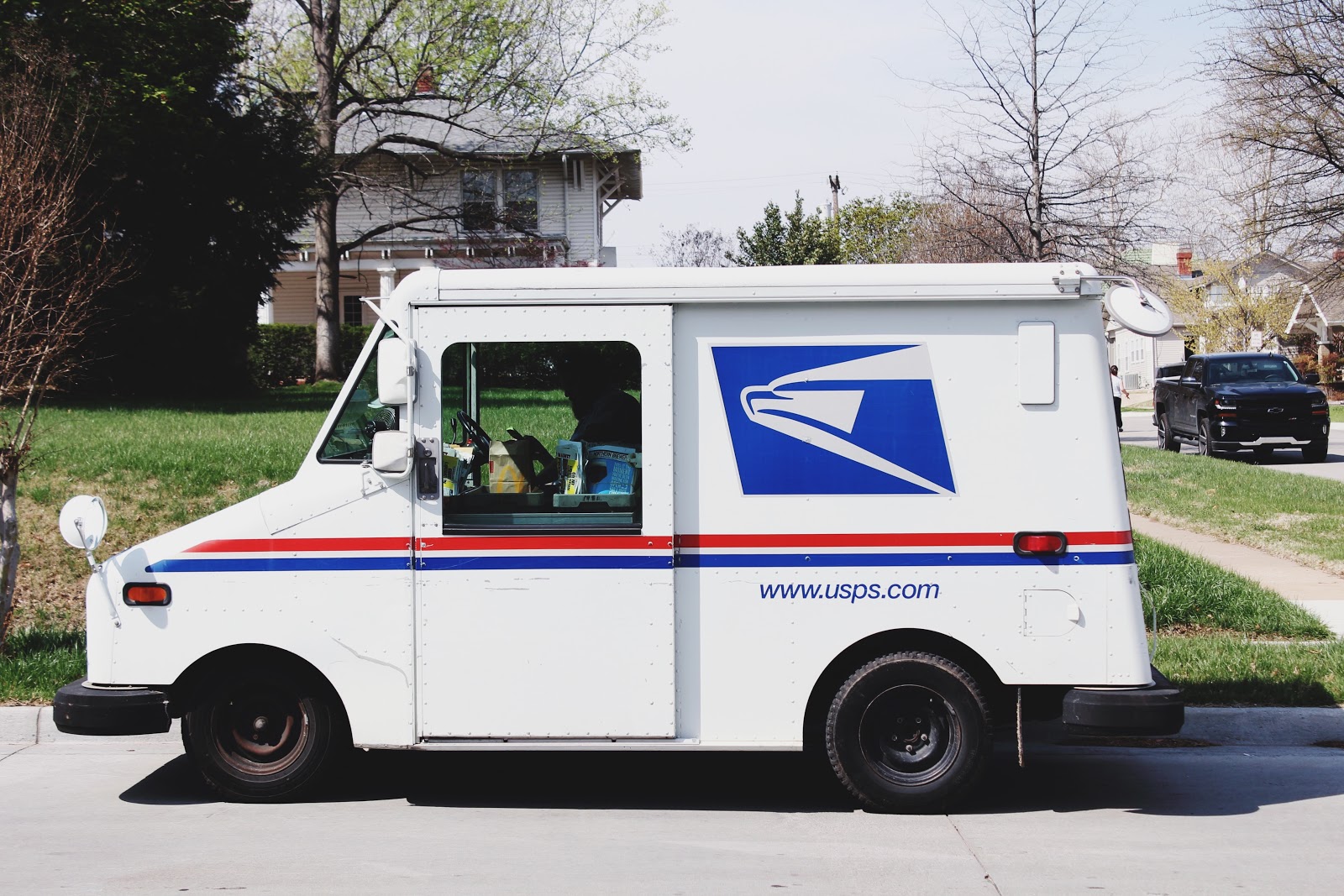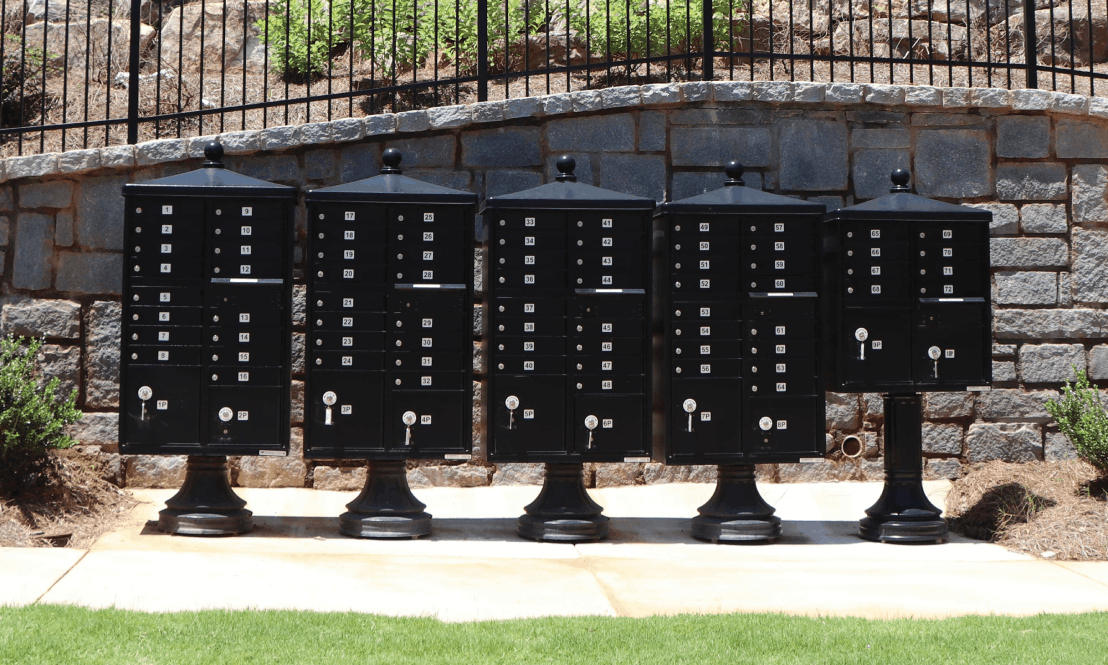Fears over contracting COVID-19 have sparked an intense discussion around voter turnout and vote by mail using personal or commercial mailboxes. These options may be less risky than going to an in-person polling location on Election Day, but some people have their reservations.
The Rise of Mail-in Voting in 2020

The federal government expects many more Americans to vote by mail in the 2020 elections instead of visiting polling places. Nearly half of U.S states opened up their Democratic primaries to vote by mail, and many more will likely do so for the November general elections.
Voters still maintain a sense of privacy despite sending in their ballots from home. Many states place the mail ballot in a secrecy envelope, which separates the voter's identity from their ballot.
Three Main Advantages of Voting by Mail
- Minimal Risk of COVID-19
Voters who have health conditions that make them vulnerable to COVID-19 will likely want to vote by mail. Mailing your ballot from home helps you avoid a potentially crowded polling center, so even those in perfectly good health are wise to send in their vote.
- Convenience and Time
You can vote at your leisure and take time to familiarize yourself with the issues. When you do not vote by mail, you often need to take time off work or arrive late to the office at the very least.
- Districts Save Money
Counties save money if they do not need to open and secure the usual amount of polling places, voting machines, and poll workers.
Three Disadvantages of Voting by Mail
- Inaccessibility
Voters in certain areas, such as on Native American reservations, may lack access to a mailbox or a PO box. Some states also require postage to mail a ballot, which can prove financially burdensome to low-income voters.
- Registering to Vote Early
Given the time it takes to receive a vote by mail ballot, you need to register before the upcoming elections to get on the voter registration rolls. Do not spend time debating the pros and cons of early voter registration, as you want to ensure that you can vote.
- Vote Counting Issues
Due to the potential for postal delays resulting from COVID-19, some Americans worry that their votes may not get counted, even if they mail in their ballots on time.
Other FAQs
What states vote by mail?
Along with Washington, D.C., 34 states have permitted vote by mail as of early August. Check your Secretary of State's or county's election website to determine if your state is among them.

What are the different ways to vote?
As an American voter, it's essential to know about the various types of methods to vote. There are numerous ways for Americans to cast their votes safely.
The most straightforward is going in-person to your polling place on Election Day. As you may have already guessed, the immediate alternative is a vote by mail or an absentee ballot.
The third option is casting an early vote at a designated site in your county. Since many Americans are less familiar with early voting pros and cons, we'll further discuss this process.
Pros of Early Voting
- You can vote early without the hassle of lines or taking time off work
- More certainty that your vote will be counted, compared to mail elections
Cons of Early Voting
- The early vote polling place may be in a different area, requiring a longer drive
- You will need to check when you can vote in your state
You may be curious about online voting pros and cons. However, it's difficult to discuss the pros and cons of electronic voting. Only a percentage of American voters in some states, like West Virginia and Delaware, may use this voting method in the 2020 election.
Electronic voting pros and cons include:
Pros of Online/Electronic Voting
- The convenience of using your phone to vote from your home
- Little risk of exposure to COVID-19
Cons of Online/Electronic Voting
- Risk of hacking and other privacy and security issues
- Can be difficult for those with little to no technical knowledge
As we said, the pros and cons of online voting in elections are somewhat limited and specific to a few areas of the U.S. While it is still new and needs time to be perfected, it could be revolutionary as it expands in popularity. Depending on how states handle the security concerns, perhaps it will be more widespread by the 2024 elections.
What is the difference between vote by mail and absentee ballot?
Many Americans want to know the differences between mail-in ballots and absentee ballots. If you do not believe you can vote in person during the elections, you can request an absentee ballot from your state's election authorities.
However, in many of these states, absentee voters must provide a specific reason as to why they cannot vote in-person, such as if they're living overseas. Yet, these same states are also relaxing their absentee voting procedures in this year's elections due to COVID-19.
By contrast, universal vote by mail (VBM) provides each registered voter in the state with an absentee ballot, whether they request it. Oregon, Washington, Utah, Colorado, and Hawaii have adopted this practice of mail elections, and other states may follow suit for these 2020 elections.
Ultimately, voters must weigh the pros and cons and decide whether they prefer the convenience and safety of mail-in ballots or the security of an in-person vote.
© Copyright 2008 - 2020 BudgetMailboxes.com. All rights reserved.
















